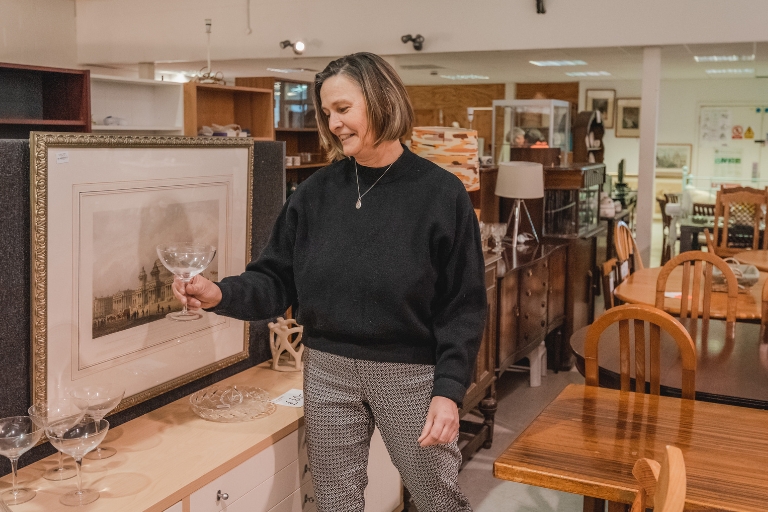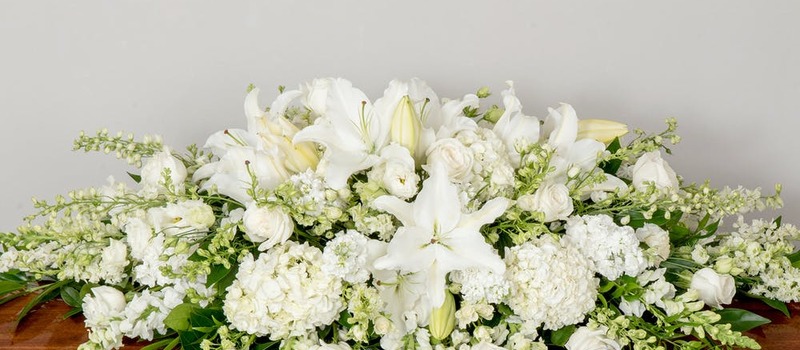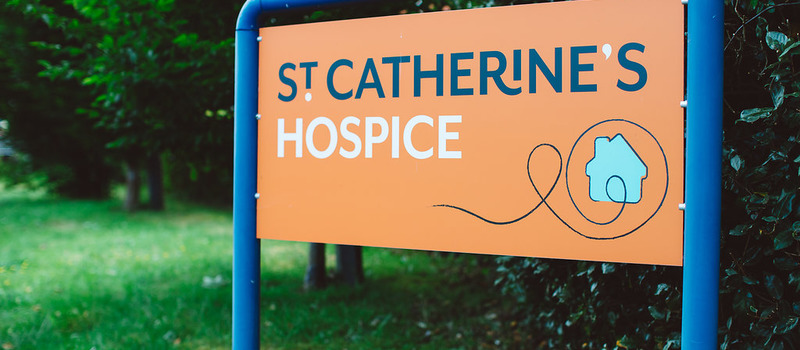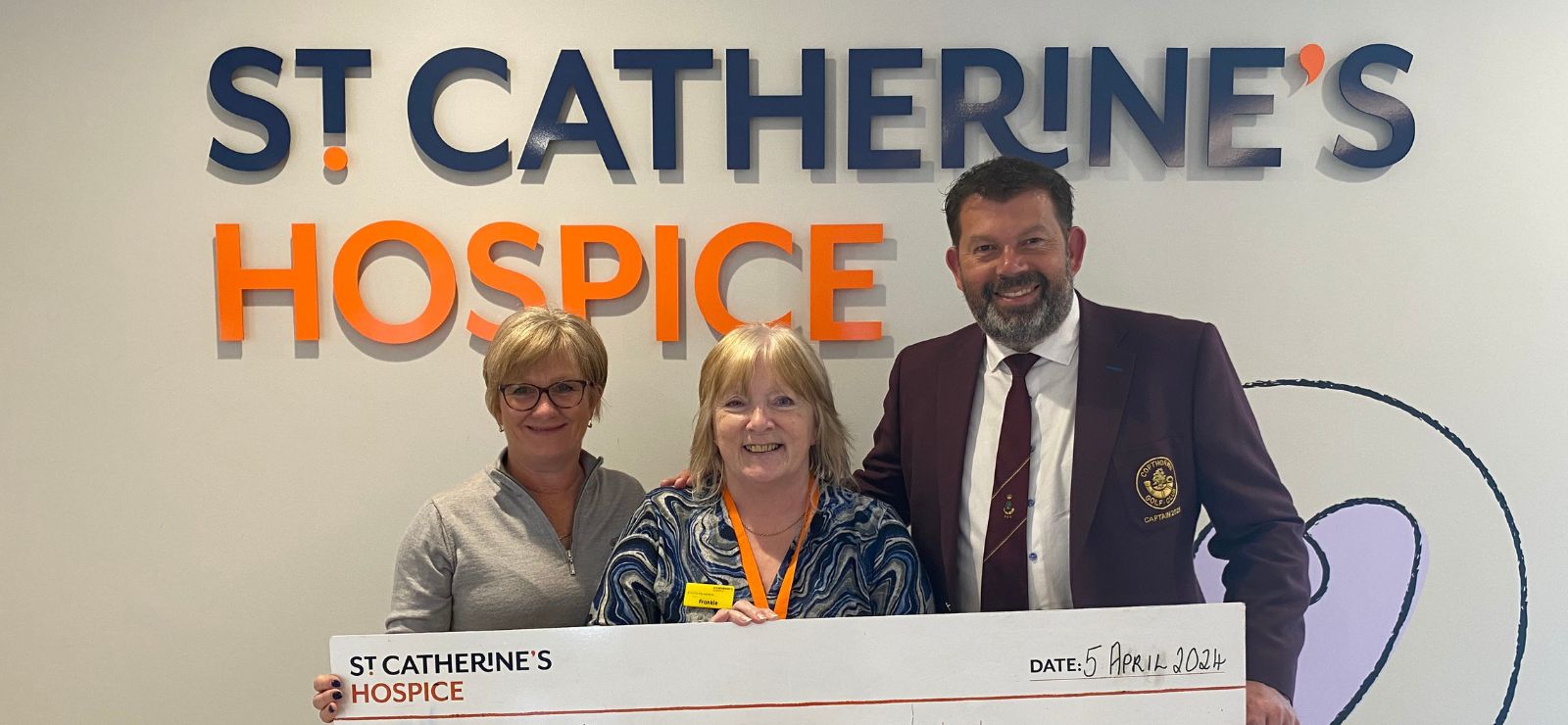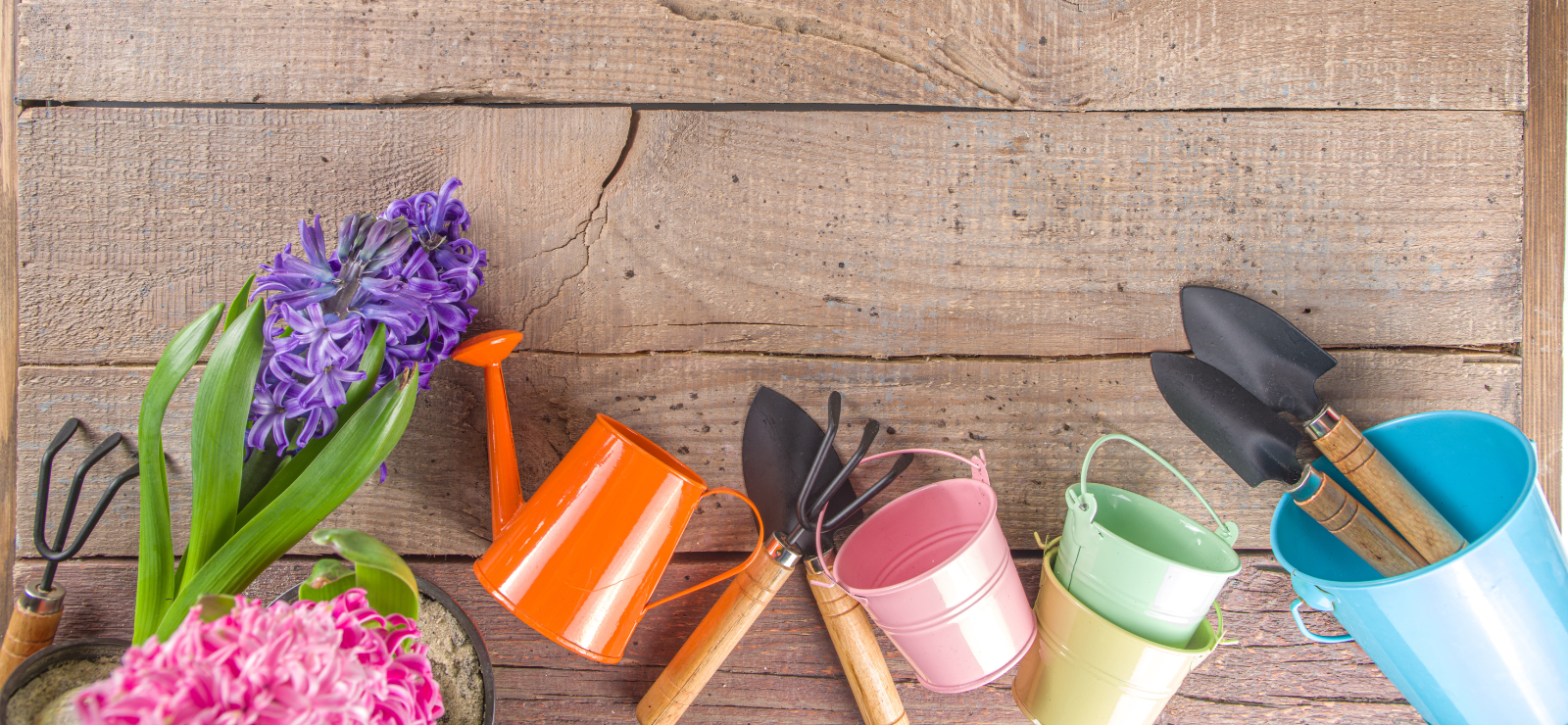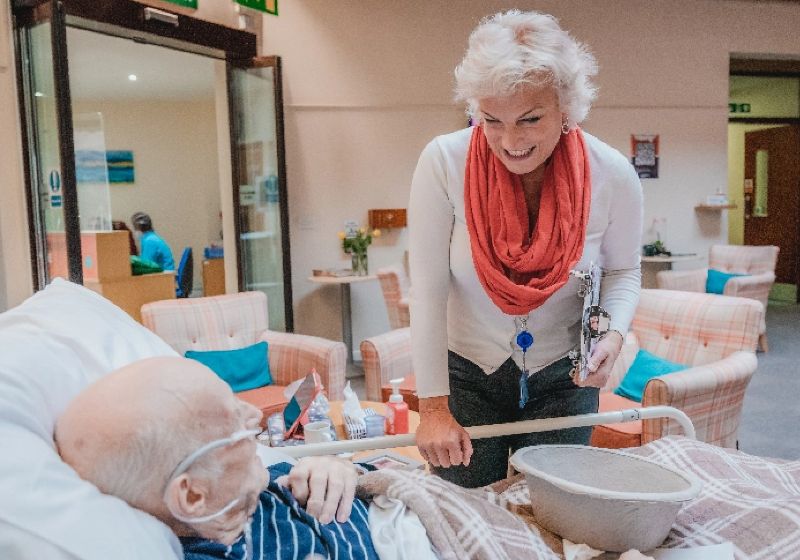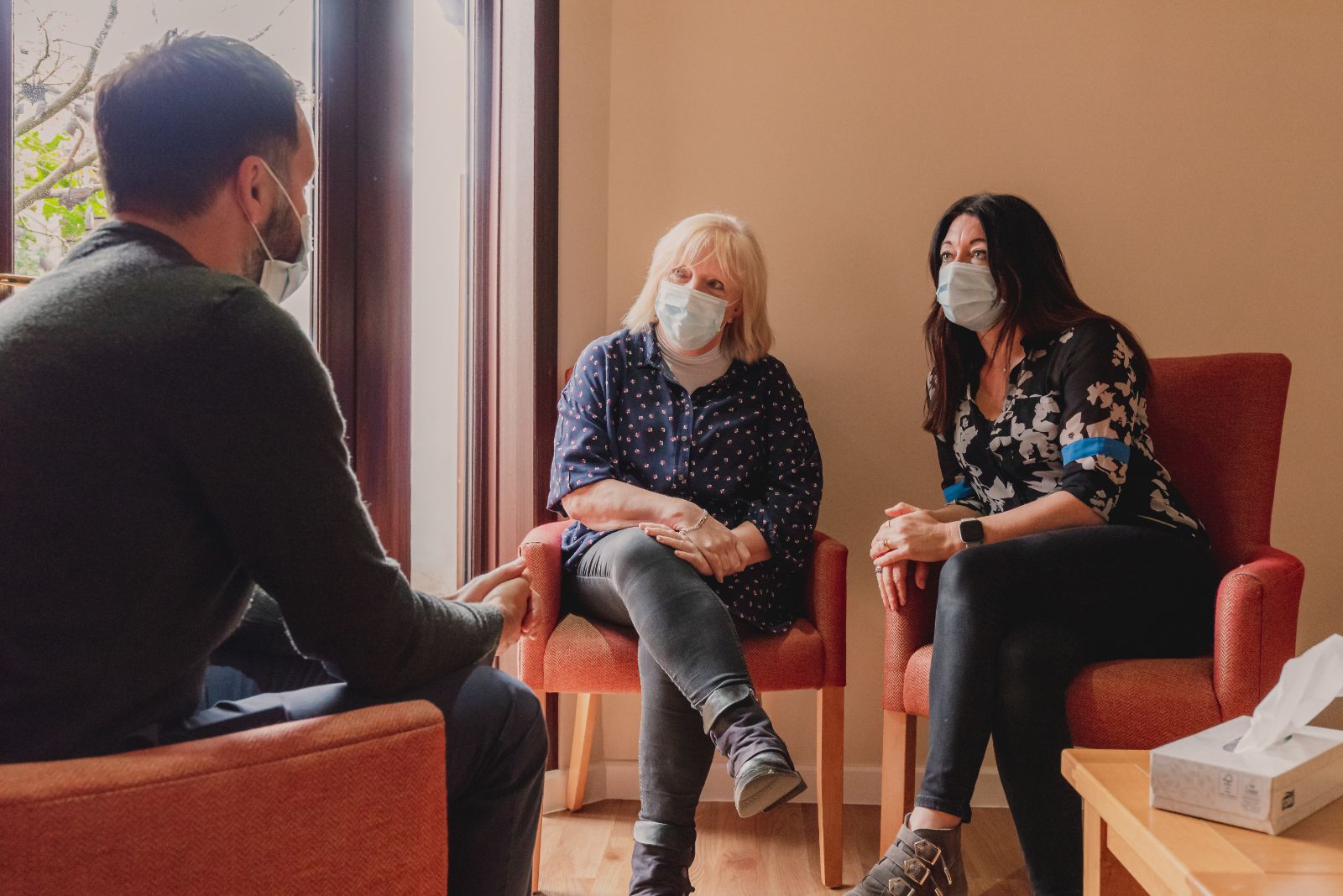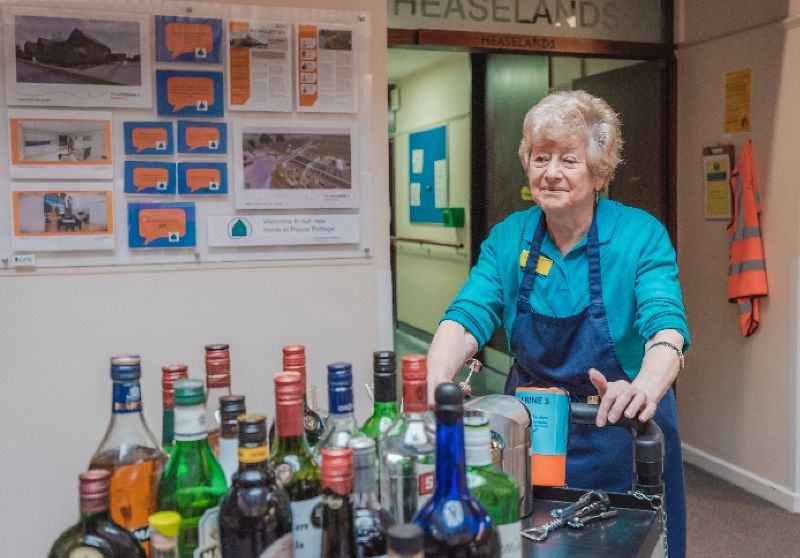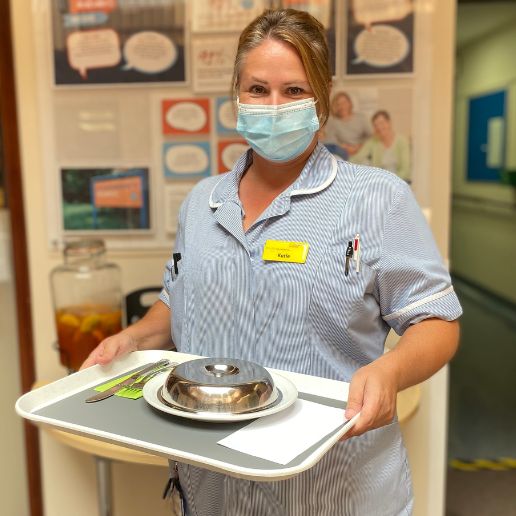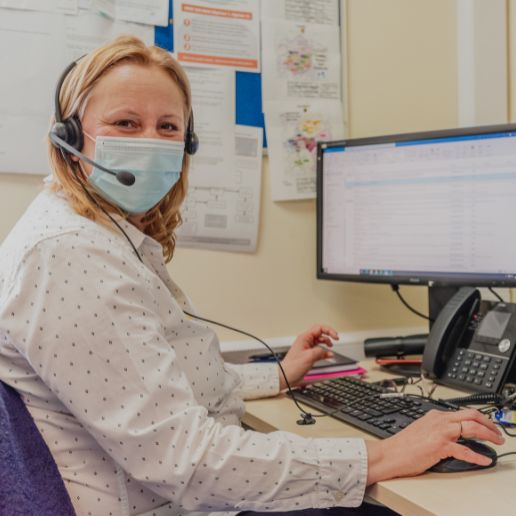“St Catherine’s is our most popular charity”
As a local hospice we work closely with others in our community to provide the best possible care pre and post bereavement. We spoke to Becky Hughes, Community Co-co-ordinator at Freeman Brothers Funeral Directors about how she works with our hospice and what she’s learnt from working around death and bereavement. Here’s what she told us.
In your role how do you work alongside St Catherine’s?
“As my role is marketing and community-focused, I tend to liaise with St Catherine’s when you’re looking for support from local businesses. Two years ago we were a key part of your Heart to HeART campaign, sponsoring the ‘Keepsake’, heart hosting two hub takeover days in County Mall Shopping Centre in Crawley nd covering the event extensively via social media. It was great fun and such a pleasure to be a part of. We closed the campaign with a bake off, which some of the St Catherine’s team came and judged!”
Is it common for people to want to support St Catherine’s as part of their funeral plans?
“St Catherine’s is our most popular charity and receives the most in donations. Since we adopted our online donations platform in 2018, over £155,000 has been raised via this for your hospice. It’s a popular choice due to the support you’ve given to those who require your services and the relationship people build with you.”
Why do you feel it’s important to support us as your local hospice?
“We have a close relationship with yourselves, and as we move into a new era (hopefully post-COVID!) and you build a new hospice we’d love to strengthen this further. It’s important for us, because there’s a handover of care – you have cared for someone at the end of their life and when they die, that responsibility then becomes ours for a little while. We like to do the best by that person and their loved ones, which is why it’s important to know who they are and how they lived.”
In your role, like for many of our colleagues here at the hospice, you regularly speak to people about death and dying – what’s one thing you’ve learnt from these conversations?
“That there’s nothing to be afraid of, and only positivity to be gained. Talking about death and dying is helpful – it allows us to process our emotions openly and also satisfy our curiosity. Having honest conversations about our wishes allows for them to be fulfilled, which brings many people a huge sense of peace.”
What one thing do you wish people knew about your job/the work Freeman Brothers does?
“I wish people knew so much! I’d love for people to take on board that they can have what they truly want when they die – there’s no necessity to have a service if you don’t want one (my Dad now doesn’t, since I’ve worked here, as he’s realised that’s ok); the hearse doesn’t have to drive slowly if you don’t want it to (they typically only go at a slower speed as it was all that horses were capable of)… but if you do want any of those ‘traditional’ elements, that’s ok too. It’s about getting the funeral that suits you and the people attending best, rather than following a template which is decades old.”
Since the pandemic in particular many people have been bereaved – any advice on how we can support bereaved people, both professionally and personally?
“I think it’s important to understand that we have all been bereaved at this time, and that is happening – bereavement isn’t just about death; we’ve grieved and longed for social contact, for travel, to feel confident walking into a shop; we’ve been bereaved of plans which have changed, experiences we’ve missed out on and timelines in our lives which are now altered. For me, self-compassion is a critical practice – it’s ok to be upset, but not to stay that way; it’s ok to be anxious, but not to live like that permanently. Help has felt difficult to access when isolated, and it’s worth reminding those we love that we are ready and willing to listen to them and provide comfort, or to help them find solutions to their struggles.”
What advice do you have for people about discussing funerals or planning their own or a loved ones?
“Be honest about what you’d like and don’t feel tied to tradition. Remember that what you’d like may not be what others would like, and that’s ok. And, if you’re not sure, ask a professional – our advice is always given freely and without obligation; we will be honest, and if we don’t have an answer to hand, we will check and come back to you. If you don’t ask, you won’t know. There’s a great example of how one of your patients lived this journey here”
If you would like to consider your own end of life care wishes and how you might like to be cared for in the future our advance care plan can help you to do this or for bereavement support and advice please look at our bereavement pages.


